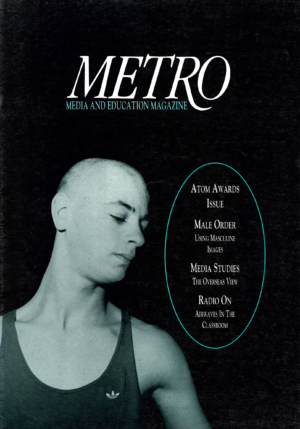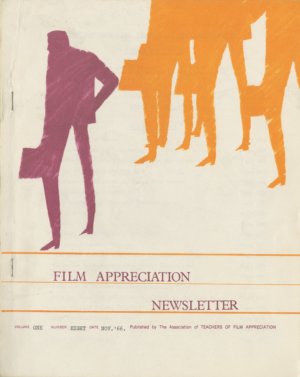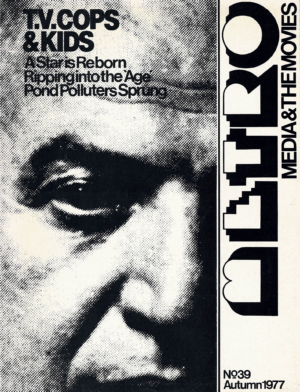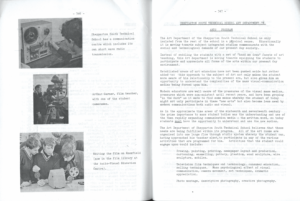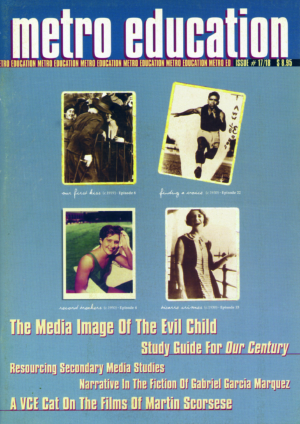I could talk about Metro. Except I’ve commissioned seventeen stellar contributors to do just that, so, instead, let me tell you about the person currently responsible for putting it together.
One of the first things I did when I landed the Metro editorship was attempt, with my nervous newbie energy and infinite nerdiness, to make sense of the magnitude of Metro’s history. On the publishing side, its style guide – a key document for those of us in the business of editing – was expansive and laden with precedent, but also littered with inconsistency. I set about not just memorising this document but revamping it, and, within my first month, and with input from then–Screen Education editor Greta Parry (who was also my subeditor – and I, hers – because we tight @ ATOM HQ), I had a totally clear, totally comprehensive version that I, of course, proceeded to disseminate via all official channels as well as among the other staff. Speaking of, that was another aspect of this ‘history’ story: I like knowing everyone’s business, like Regina George (Rachel McAdams) in Mean Girls (Mark Waters, 2004) except not mean, so I proceeded to venerate my Filipino roots and gossip with everyone about the ins and outs of both publication and parent organisation. All in little doses, mind you; can’t be too obvious or else I’d have ruined my cool exterior or tarnished any respect my new co-workers had for this precocious youth(ish).
I’m not going to shy away from that last bit, but that’s the third ‘history’ thing: Metro is old. Like, only-seven-years-younger-than-my-Boomer-mother old. Getting a gig like this at twenty-four meant colliding head-on with the robustness of that legacy. This magazine had published critics whose words I’d read at uni, in libraries, on the internet while trying to figure out what the hell that ambiguous off-centre long shot meant at the end of that arthouse film. My high school media teacher (and eventual teaching-placement mentor; yes, surprise! I’m a qualified teacher as well), Liza Bermingham, was previously on its board. A favourite uni lecturer, Alexandra Heller-Nicholas, is one of its regular contributors; eventually, more lecturers’ names would pop up in our author database (that’s right – an internal, technologically facilitated gossip network!). From its humble origins as a newsletter to what is now an internationally sold, industry-respected journal – ‘Australia’s oldest film and media periodical’, as I like to parrot to anyone who’d listen, after getting smug confirmation that, yes, it does beat Cinema Papers by a couple of years – Metro has come a long way.
And so had I. Prior to helming Metro, I’d been working in book publishing and hating it – not because I hate books, but because I have zero patience for the delayed gratification of a published manuscript. At the same time, I was also editing for the literary magazine Voiceworks, heading its nonfiction department and working as deputy to one of the best people I’d ever met (and whom I and the world are unfortunate to have lost so early; a story for another time). It was always clear to me that I enjoyed Voiceworks more than the book-editing gig. The turnaround was short: a few weeks of involved editing and you had finished pieces; within the next month, you had beautiful layouts pretty much mirroring the tangible product. Quarterlies work to a twelve-week cycle, and that synced with my natural predisposition for regularity and rhythm.
So when I got the Metro gig, it felt like a reward for that entire slog. And I wanted to do it damn well. By all accounts, over my six years in the editor’s chair thus far, I’ve been doing just that.
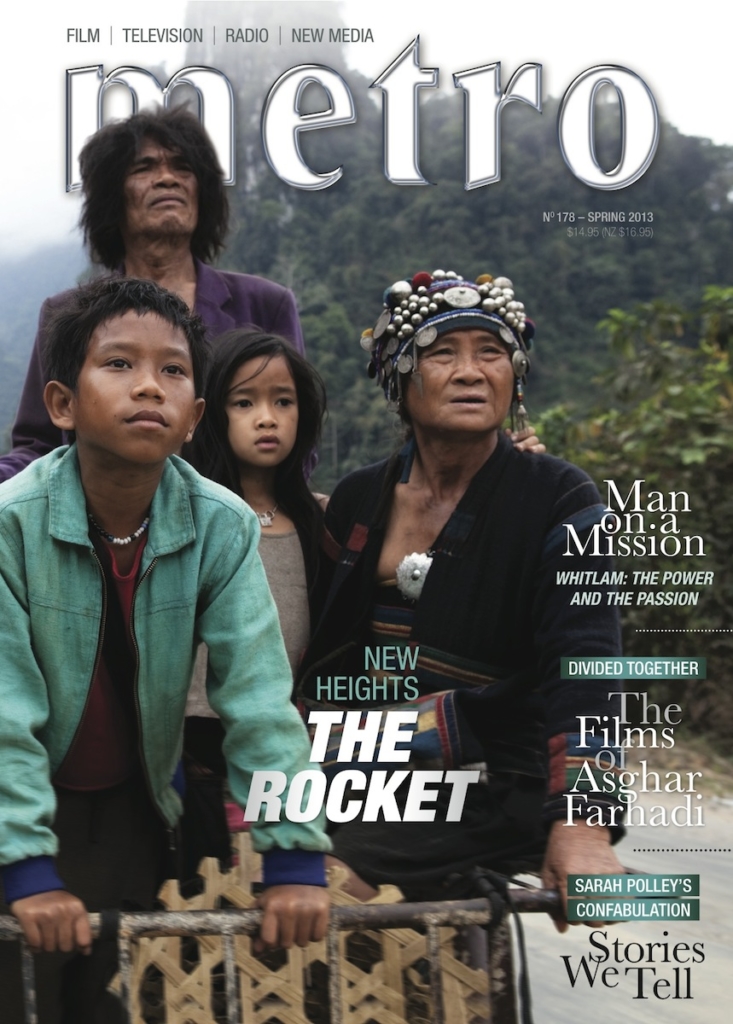
I dare say my twenty-three issues of the mag to date are some of my proudest achievements. This is coming from someone whose childhood-bedroom walls were literally papered over with framed awards and medals (fodder for my regular psych visits); who blitzed through school; who got selected as one of Melbourne’s literary 30 Under 30; who fills his non-day-job time with professional speaking, teaching and dancing gigs. Aristotelian ethics emphasises the importance of aretē: the ‘doing’ aspect of the ‘good life’ that also doubly means ‘excellence’ and ‘virtue’. Aretē is directed outwards – while you can obviously get something out of it, personally, it’s ultimately about contributing what you’re naturally good at for a larger whole: a knife is only a knife if it cuts things sharply. I’ve always had an aptitude for language, for argument, for organisation, for getting people to do what I want and on time but without feeling bossed around (like Regina George), and this job, at heart, is about all of those things. There are days when the dread about a tricky edit or the anger at an author gone AWOL is unbearable. But each time I hold another issue in my hands, seeing how text and images have come together so purtily, I’m met with the same giddy feeling I get every time I’ve done something good. Not just a ‘good job’ good, but aretē good. Bigger-than-me good. Because, my superb editing and management aside, each Metro reminds us that art does things: it teaches us, transforms us, tells us about lives we don’t live and lines of thought we’ve yet to entertain. It links us to others’ views, lets us understand, smoothens paths to seeing the world differently.
If I felt this way about issues I’d made, imagine how my predecessors must have felt! So I decided to do something to mark this milestone. Putting together this historic 200th issue has been both incredible and hellish. Hellish because, in the lead-up to print, I’d spent several twelve- to fifteen-hour days just getting shit ready (including trawling the ATOM archives and scanning shelves-worth of material), which means I’m an exhausted pile of mush barely retaining upright form as I write this. Incredible because I’d always known about Metro’s trajectory, but nothing prepared me for the satisfaction of flipping firsthand through, say, those lo-fi issues from the 1980s and reading the same stuff we talk about now: style’s relationship to substance; the importance of representation, especially for marginalised groups; the semiotics of shot sizes; male filmmakers (lol); how the industry needs to better support the arts; how screen storytelling is wondrous for all of us, young and old.
I only have a few specific thank-yous, primarily to managing editor Peter Tapp, who took a chance on me all those years ago, and the ATOM staff, who, I’m sure, are sick of my infamous morning grump because small talk is the devil. Massive thanks also go out to Greta and her successor, David Heslin, who have proven, time and time again, that even an editor with the most immense of talents requires a subeditorial hand (besides patience, trust is another thing I struggle with and, alas, everyone makes mistakes even if we try to prevent them with seven fail-safes – thanks are clearly in order for therapist extraordinaire Dr J as well). A huge thank you, too, to my talented designer Pascale van Breugel, who unceasingly turns in elegant work (especially after the great redesign of 2014) and somehow disarms the stresses of deadline time into non-stresses. And, of course, heaps of thanks to my amazing writers, who keep my magazine ticking, inspire me to be a better writer myself and, really, make this job worth doing.
David pointed out that, second to Peter (who doesn’t count because he’s superhuman), I’m now officially the longest-running Metro editor in the magazine’s entire history – please refer to the table below, which I’ve meticulously put together – and it’s a strange, spectacular feeling, as though I’ve emerged victorious in a battle royale whose contestants didn’t know they were playing. It’s not a competition, but, like, also I’ve won. I’m grateful, I’m honoured, and I’m excited to continue furthering the legacy of all who’ve come before me and made Metro and ATOM the stalwarts they are today.
What you’re holding in your hands, dear readers, is a capsule of time. In a hundred years, or another hundred issues, some nerd will flip through its pages and say to themselves, ‘Dayummn, the world was so different back then – and yet, somehow, it’s also still the same.’ They’ll sigh, then continue: ‘But, omg, what were they thinking with that layout?’
Metro editors over the years
1963–1974 (by committee)
1974–1975 Dawn Brown
1975–1976 Warren Thomas
1976 Michael Small
1977–1981 Peter Hamilton
1981–1983 Helen Kon
1984–1989 Sheila Allison
1988 Paul Kalina
1989 Philippa Hawker
1989–1998 Peter Tapp
1995–1998 Raffaele Caputo
1998–2001 Kate Raynor
1999–2001 Naji Dellal
2001–2003 Liz Conor
2003–2006 Sophie Gebhardt
2006–2007 Zoe Tovey
2007–2010 Natalie Book
2010 Rjurik Davidson
2010–2011 John Marnell
2011–2013 Nick Tapper
2013 Tim Coronel
2013–present Adolfo Aranjuez

